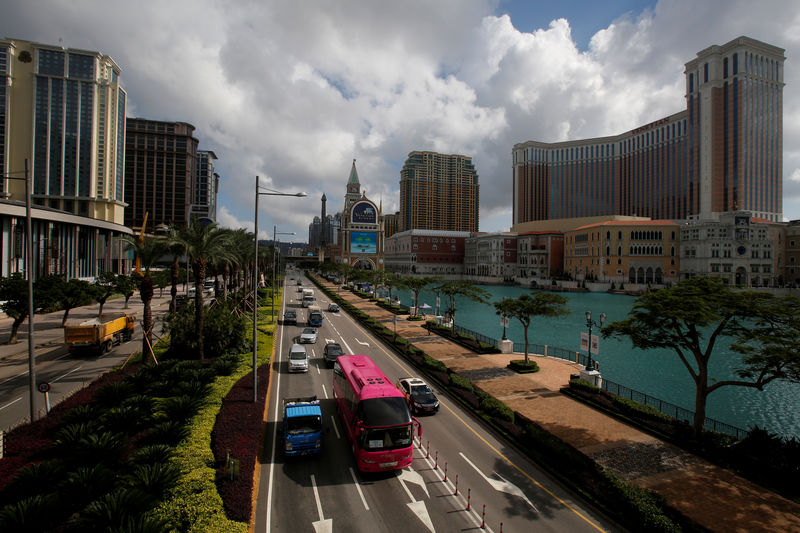(Reuters) - Gambling revenue in the Chinese territory of Macau dropped 5 percent in January, the first drop in more than two years, as appetite for gambling waned amid slowing economic growth and increased headwinds from the Sino-U.S. trade war.
The special administrative region reported 24.9 billion patacas ($3 billion) revenue, compared with 26.3 billion patacas a year ago, Macau's Gaming Inspection and Coordination said on Friday.
The drop was likely due to a smoking ban that came into effect on Jan. 1 as well as muted sentiment among VIP players ahead of Chinese New Year holidays in February, analysts said.
The figure was in line with analyst expectations of flat to a 12 percent drop in growth. The total revenue figure of 24.9 billion patacas dropped month on month from December last year but was the same as November's monthly figure.
Macau, located on China's southern coast and the country's only legal casino hub, is highly reliant on gambling revenue for its finances, with taxes from the casinos accounting over 80 percent of the government's revenue.
Authorities have asked operators to diversify from solely gambling and broaden Macau's economic base in order to lessen the territory's dependence on the glitzy casinos.
They have also been pushing the six casino concessionaires - Sands China, Wynn Macau, SJM Holdings, MGM China, Melco Resorts and Galaxy Entertainment - to provide more non-gaming amenities in a bid to diversify.
Licenses of the concessionaires begin to expire next year but there is no clarity yet on what happens after that.
Revenue growth is likely to remain moderate in 2019 as concerns about China's growth weighed on gambling appetite of players in the high-roller VIP segment, analysts said.
Nevertheless, casino executives are bullish on the potential benefits from the opening last year of the world's longest sea-crossing bridge and tunnel, linking Macau to the financial center of Hong Kong and mainland China's Pearl River Delta.
The bridge connects Hong Kong's international airport to the casino hub in just over half an hour. Prior to the bridge opening, visitors would have to take a one-hour ferry ride from the former British colony to Macau.
Authorities are also hoping it will boost the development of Macau's convention and exhibition business and lift overnight visitation numbers, which help drive non-gaming revenue.
